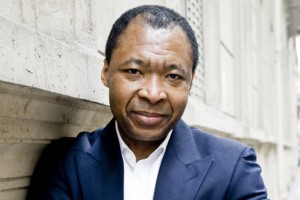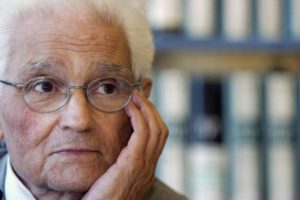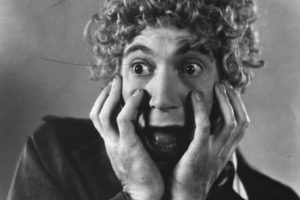Jacques Lacan: For the First Time, Now!
These reflections were included in Apropos of Nothing: Deconstruction, Psychoanalysis, and the Coen Brothers (SUNY, U.P.). They can be cited here as: Buckner, Clark. “Jacques Lacan: For the First Time Now’” www.clarkbuckner.com. Web. Day, Month, Year article as accessed.
While the psychoanalyst Jacques Lacan has been long recognized as a leading figure in 20th-Century European thought, in fact, the force of his work has yet to be fully registered. Among other sources of this lapse, Lacan presents distinct challenges to scholars. Throughout his career, Lacan’s critical theory consistently develops and changes and, although these shifts in his thinking can be roughly demarcated into distinct periods, because they unfold only gradually, Lacan’s teaching frequently suffers from anachronisms and inconsistencies, which only can be properly parsed in hindsight of his whole development. Furthermore, because Lacan’s principal intellectual production consists in transcripts of his seminars, the text of his teaching is sprawling, and, despite the rigor of his thinking, lacks the refinement that comes with the editorial revision of a written book. Meanwhile, as a result of the political struggles surrounding Lacan’s personal legacy, many of his seminars have not yet been published in French; and, only a handful have been officially translated and published in English. A complete English edition of Lacan’s essay collection, Ecrits, was only first published in 2006; and it only charts Lacan’s teaching up to the early 1960’s, when he begins to address the Real of jouissance. Throughout most of the history of his reception, Lacan’s critical theory has thus been understood, both positively and negatively, almost entirely on the basis of his teaching in the 1950’s, when he originally appeals to structuralism to reformulate the fundamental principles of Freud’s critical praxis.
Finally, in the decades since the end of the Cold War, Lacan’s later thinking has been taken up and elaborated, above all, in the work of Slavoj Zizek and the Lublijana School of Psychoanalysis, prompting a return to Lacan, focused specifically on the implications of his concept of the Real. Nevertheless, the force of Lacan’s critical theory continues to be neutralized, among other ways, through its newfound embrace by post-phenomenological philosophers. Among English speaking scholars, in particular, the renewed interest in Lacanian psychoanalysis has thus inspired comparative studies, which emphasize the isomporphic conceptual logic in Lacan’s later theory and Derrida’s deconstruction, defending Lacan’s work essentially as another approach to the same critical project.[1] As a result, these comparative studies not only fail to address, but consistently obscure, the content that Lacan discerns in, what Derrida similarly recognizes as, the formal, phenomenological underdetermination of experience. Other scholars conflate Lacan’s concept of the ethics of psychoanalysis, with the deferential ethics of alterity that Derrida elaborates on the basis of both Martin Heidegger’s and Emmanuel Levinas’ philosophies.[1] And, in political philosophy, the theory of Radical Democracy, first formulated by Chantal Mouffe and Ernesto Laclau, suffers from a still inadequately clarified confusion of Derrida’s concept of the “impossible” and Lacan’s concept of the Real.[1] Indeed, the proprieties of post-phenomenological philosophy are so influential among Continental philosophers that, even the most astute philosophical expositions of Lacan’s critical theory take such pains to clarify his accommodation of Derrida’s critique of the metaphysics of presence that they risk obscuring the decisive points of Lacan’s critical departure from deconstruction.
Despite Lacan’s established position among twentieth-century intellectuals, the central concepts of his later thought thus remain to be unpacked and brought to bear on the contradictions in thought and culture, for the first time, now!
These reflections were included in Apropos of Nothing: Deconstruction, Psychoanalysis, and the Coen Brothers (SUNY, U.P.). They can be cited here as:
Buckner, Clark. “Jacques Lacan: For the First Time, Now!” Resonator. Web. Day, Month, Year article as accessed.




